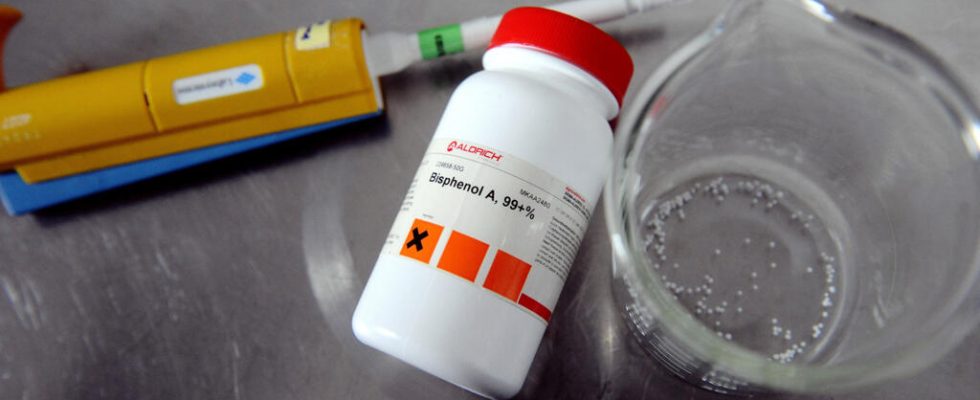Bisphenol A is an endocrine disruptor present in many food packaging, but represents a real threat to health. The European Environment Agency is warning this Thursday, September 14 of exposure above health safety levels. Almost all Europeans are affected.
2 mins
It is a substance present in many everyday products: dishes, canned goods, plastic bottles, or even in textiles and paint.
According to a report of the European Environment Agency (EEA), on average bisphenol A (BPA) is found in the urine of 92% of Europeans in eleven countries. Looking a little closer, this quantity too high endocrine disruptor concerns all French people, all Portuguese people, 83% of Germans, and even 71% of Swiss people. Figures which are partly explained by the recent drop in the dangerousness threshold.
Bisphenol A, a serious health risk
“ We are able to see that bisphenol A poses a much more widespread risk to our health than previously thought », Underlines the study. The harmfulness of this endocrine disruptor is not new: in 2011, the European Commission had already banned it in baby bottles. In 2016, it was identified as a substance of very high concern. Then in 2018, the European Union limited its use for products in contact with food. Europe and the United States have restricted its use and are considering a more drastic limitation, without this having yet been implemented.
If the European Environment Agency is sounding the alarm this Thursday, it is because this substance can harm fertility and cause respiratory irritation, as well as disrupt the functioning of the hormonal system. These disturbances are suspected of being the cause of breast cancer and diabetes.
At what dose is this substance dangerous for health? Not all European agencies agree. For the European Food Safety Authority, this is much lower than we thought: it divided it by 20,000 compared to a previous assessment. This opinion is, however, contested by the European Medicines Agency. Despite everything, for the AEE, one thing is certain: exposure to BPA “ is well above acceptable health safety levels, posing a potential health risk to millions of people “.
(And with AFP)
